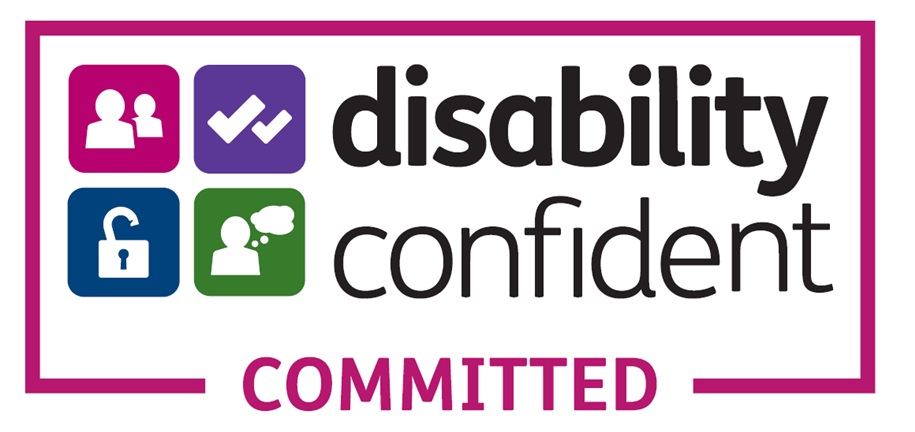For employers, there are many advantages in recruiting, retaining and developing employees with disabilities. By looking beyond someone’s disability, an employer can access a wider range of applicants and find workers who can fill the skills gaps that still exist in the job market. They can use the experiences of disabled people to understand how their customers think and what drives their consumer behaviour. Employers will benefit from tapping into the innovative mind set developed by disabled people through dealing with daily challenges. Many of the country’s leading employers are starting to recognise these advantages and openly promote their commitment to recruiting a diverse workforce.

Identifying employers committed to good practice
- Companies that use the Disability Confident mark in their job advertisements and corporate literature are publicly announcing their commitment to attracting applicants with disabilities. This commitment includes: inclusive and accessible recruitment, communicating vacancies, offering an interview to disabled people, providing reasonable adjustments and supporting existing employees. They publish a list of employers who have signed up which you can view here.
- You can also check to see if an employer is a member of the Business Disability Forum . The Forum’s purpose is to improve the job prospects of people with disabilities by supporting employers in recruiting, retaining and developing their disabled employees. There are now hundreds of corporate members demonstrating a positive attitude towards disabled people.
- If your preferred employer doesn’t subscribe to the above initiatives, you can gain an insight to their practices through looking at advertisements, promotional material and annual reports. These will give you an idea of the company’s culture, initiatives and approach to diversity and equal opportunities. If the employer offers flexibility in these areas, it is reasonable to assume they will have a positive approach to disability as well. Equal Opportunities policy statements should also cover disability.
Legal protection
The Equality Act 2010 aims to protect disabled people and prevent disability discrimination or unfavourable treatment. The Act provides legal rights in the areas of employment (as well as education, access to goods, buying and renting land or property and the functions of public bodies). Disability is defined as ‘a physical or mental impairment’ that has ‘a substantial and long-term adverse effect’ on a person’s ‘ability to carry out normal day-to-day activities’. An employer is legally required to make reasonable adjustments to the recruitment process and in the workplace to prevent people with disabilities from being at a disadvantage. Many students worry about disclosing a disability during the application process – you can gain further advice on disclosure via the Target Jobs website. Graduate employers strongly advise you to inform them of any adjustments required in the recruitment process to ensure that you are assessed on a level playing field.
Organisations offering support to students with disabilities
Final thoughts
Remember you are offering the employer a wide range of skills, knowledge and expertise which will be of great value to them. Prepare positive examples of how you have overcome challenges in the past. The Equality Act is there to help you deal with any discriminatory behaviour and it is useful to identify other sources of support in the job seeking process.
Sources:
- University of Westminster Career Development Centre
- BusinessLink
- Business Disability Forum
- TARGETjobs
- https://disabilityconfident.campaign.gov.uk/
